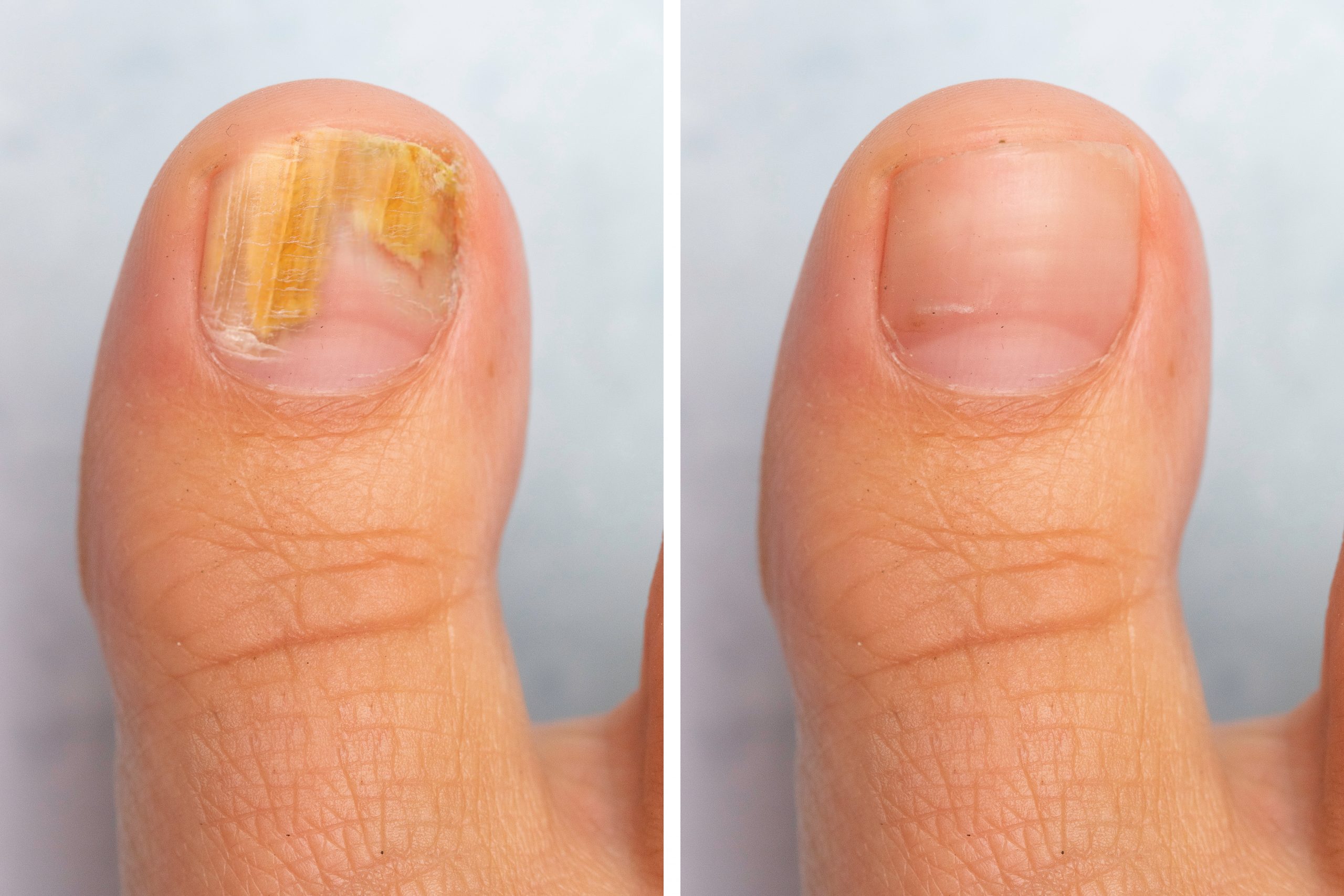Toenail fungus is a common fungal infection that affects the toenails. It can cause thickened, discolored, and brittle nails, and can be difficult to treat. Toenail fungus can also have an impact on foot health. In this article, we’ll explore the connection between toenail fungus and foot health.
Toenail Fungus
Toenail fungus, also known as onychomycosis, is a fungal infection that affects the nails of the toes. It can cause the nails to become thickened, discolored, and brittle. Toenail fungus is caused by a variety of fungi, including dermatophytes, yeasts, and molds. The infection can spread to other nails, as well as to other parts of the body.
Toenail fungus is more common in older adults and those with certain health conditions such as diabetes, circulatory problems, and weakened immune systems. It can also be spread in environments such as public pools, showers, and gyms.
Foot Health
Foot health is essential for overall health and well-being. Foot problems such as toenail fungus, athlete’s foot, and plantar warts can cause discomfort and pain, and can be difficult to treat. Proper foot care can help prevent foot problems and promote foot health.
Foot care tips include:
Keeping feet clean and dry
Wearing comfortable, properly fitting shoes
Using foot powder to help absorb moisture
Wearing socks made of breathable materials
Keeping toenails trimmed and clean
Avoiding going barefoot in public places
Inspecting feet regularly for signs of problems
Seeking medical attention for foot problems
Toenail Fungus and Foot Health
Toenail fungus can have an impact on foot health. Thickened, discolored nails can cause discomfort and pain when wearing shoes, and can make it difficult to walk or participate in physical activities. In severe cases, toenail fungus can lead to nail deformities or even loss of the nail.
Toenail fungus can also be a sign of an underlying health condition such as diabetes or circulatory problems. People with these conditions are more susceptible to foot problems, and should take extra care to maintain foot health.
Prevention and Treatment
Preventing toenail fungus is the best way to maintain foot health. Avoiding public places barefoot, wearing breathable shoes and socks, and keeping feet clean and dry can all help prevent toenail fungus.
Treatment for toenail fungus can be challenging. Over-the-counter antifungal medications can be effective for mild cases, but more severe cases may require prescription medication or other therapies such as laser treatment or surgical removal of the nail.
In conclusion, toenail fungus can have an impact on foot health. Proper foot care and prevention of toenail fungus can help promote foot health and prevent foot problems. If you suspect you have toenail fungus or other foot problems, talk to your healthcare provider or podiatrist to determine the underlying cause and develop an appropriate treatment plan.
The Connection Between Toenail Fungus and Psoriasis
Toenail fungus and psoriasis are two common conditions that can affect the feet. Recent research has found a connection between the two conditions. In this article, we’ll explore the connection between toenail fungus and psoriasis.
What is Toenail Fungus?
Toenail fungus, also known as onychomycosis, is a fungal infection that affects the toenails. It’s a common condition that can cause the toenails to become thick, discolored, and brittle.
What is Psoriasis?
Psoriasis is a chronic autoimmune condition that causes skin cells to grow too quickly, resulting in thick, scaly patches on the skin. Psoriasis can occur anywhere on the body, including the feet.





